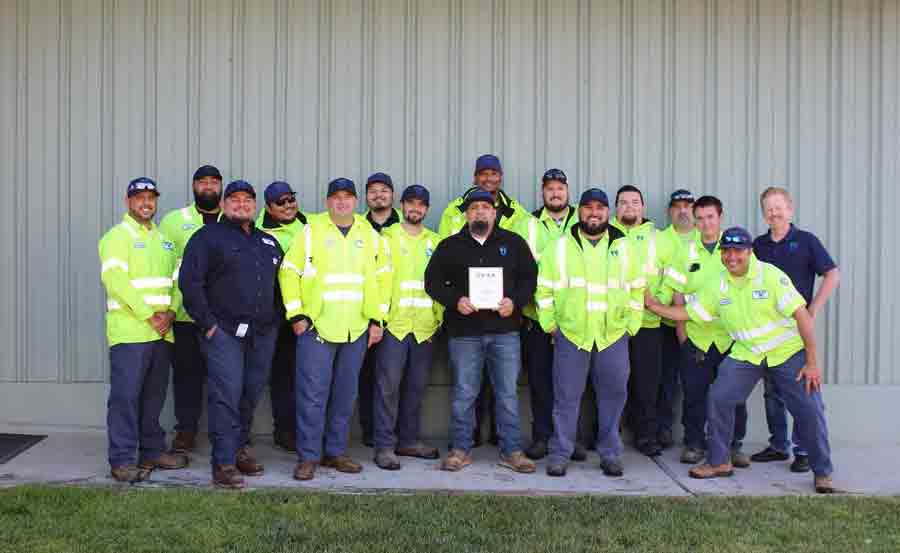
Heath Cortez has dedicated 20 years to advancing at West Bay Sanitary District, starting as a maintenance worker, then as the lead worker for the construction department, and rising to Operations Supervisor. His path hasn’t always been easy; he frequently reflects on the challenges he faced due to limited connections that could provide information for projects or help in emergencies. Recalling his field experiences and aiming to support newer colleagues, particularly those in collections for just a few years, he chose to create a presentation for CWEA’s AC25, focused on educating this new generation of collection workers.
“I wanted to help some of the new guys just getting started,” Cortez said. “We didn’t have anything like this when I got started in the field.”
Cortez joined the West Bay Sanitary District in 2005, drawing from his construction background. In 2006, he earned the role of construction lead, which he held for 13 years. By 2019, he took over the position of Operations Supervisor for the District. The West Bay Sanitary District serves the San Francisco Bay Area cities of Menlo Park, Atherton, and Portola Valley, as well as parts of East Palo Alto, Woodside, and unincorporated areas of San Mateo and Santa Clara counties. The District transports raw wastewater through the Menlo Park Pump Station via forcemain to Silicon Valley Clean Water for treatment before it is discharged into the San Francisco Bay.
“When I first took over the construction program, we would have about 30 repairs completed yearly,” he said. “It took some time, but we started to complete 165 to 170 repairs a year and have been able to reduce the SSOs to single digits.”
In his presentation, Cortez will cover 11 subjects in a way that newer collections works can grasp. He will also clarify the significance of each section. He compiled this list with assistance from his team at West Bay and support from members of the CWEA Santa Clara Section, where he currently serves as president.
The sections include:
“I wish I had learned some of these skills in my younger years,” he said.
Cortez emphasizes that collection workers should recognize they are not merely field laborers; they are trained professionals entering a specialized field. They have access to support from organizations like CWEA and experienced individuals.
Cortez thinks attending this presentation is just the first step toward establishing a long-term career in a vital industry that safeguards human safety and the environment.
“Be a student of your trade,” Cortez said. He can’t encourage newer members of the collection field enough to work on increasing their Grade levels.
“I even encourage people to over-grade and get ready for their next promotions as soon as possible,” he said. “Don’t stall out and become still. I encourage everyone to look outside the box and move forward.”
Catch Heath’s presentation at AC25 on Wednesday, April 23 at 1:25 p.m.. View the Collections Systems Frontline track at the Annual Conference in Palm Springs from Tuesday through Friday, April 22-25. Details here.